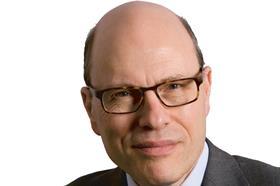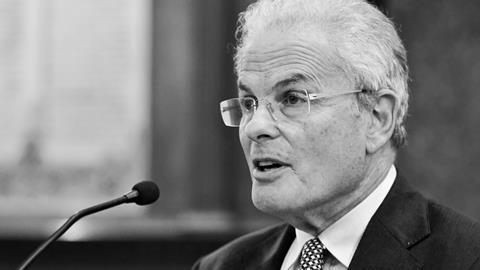‘I regret to have to criticise her as severely as I have, but to my mind she is completely and absolutely wrong about this… She has taken a position that is constitutionally absolutely wrong.’
The date was 22 March 2017, when Truss was lord chancellor. And the speaker? None other than the lord chief justice of England and Wales.
Lord Thomas of Cwmgiedd was responding to suggestions from Truss that the judges should have defended themselves against the notorious Daily Mail headline that defamed them as ‘enemies of the people’ for holding that legislation would be required to trigger Brexit.
‘I cannot see how we could have said anything without immediately plunging ourselves into a political controversy,’ Thomas told the House of Lords constitution committee. He was referring to the period immediately after his ruling in November 2016; by the time Thomas was giving evidence four months later, his judgment had been upheld by the Supreme Court and parliament had passed the necessary legislation.
Even so, no serving judge has publicly criticised a sitting lord chancellor as severely as Thomas did – before or since. It came as little surprise that Truss was moved to another post after the election of June 2017, not even completing a full year at the Ministry of Justice. And that was when a year was a short time in politics.
Judges are free to comment as they see fit when speaking from the bench. But what should they say extra-judicially – when they are not in court? That’s the subject of a fascinating lecture by Lord Dyson (pictured), who was master of the rolls from 2012 to 2016 and served before that as a justice of the Supreme Court. The lecture, given last month at Newcastle University law school, will be published in due course.
Dyson respects the principle that judges should not comment publicly on government policy or proposed legislation. But he questions the convention that judges should not comment extra-judicially on the merits of other judges’ rulings. Those comments, it is suggested, might prevent the judge from sitting on a case in which similar issues arise. But Dyson thinks that is unlikely to cause difficulties in practice. Judges are encouraged to give lectures and there is no value in making them anodyne.
That said, he strongly supports the principle that judges should not explain or defend their judgments in public. ‘Such an exercise is damaging to the dignity of the judicial office,’ he says. ‘Even if the judge is angered and feels deeply wounded by the unfairness of the criticism (and judges do have feelings), those who read the criticism will almost certainly forget it very quickly.’
What, though, about speaking to the media? Dyson recalls the decision in 1993 by Lord Taylor of Gosforth, lord chief justice 1992-96, to appear on the BBC television programme Question Time. Describing Taylor’s appearance as a public relations flop, Dyson said it was obvious that he felt seriously inhibited about saying anything interesting at all. Indeed it was – and the experiment has never been repeated.
But Taylor’s decision to hold occasional news conferences has been adopted by his successors. They also give interviews to individual journalists, inhibited only by the belief – not always justified – that exclusives will annoy rival reporters.
A guide to judicial conduct, issued by the current lord chief justice in 2020, advises retired judges to exercise caution and ‘avoid any activity that may tarnish the reputation of the judiciary’. Dyson questions this. ‘There is a real public interest in learning from retired judges what they think about burning legal issues of the day,’ he says. Senior judges ‘are unlikely to go wild once they retire’.

That must be right, although the public may not be sure whether a former judge is continuing to sit in retirement – as many do.
Having written a memoir himself, Dyson has no problem with judges who remind us of long-forgotten cases. But like many of his former colleagues, he ‘greatly regrets’ that Lord Hope of Craighead, former deputy president of the Supreme Court, published a series of detailed extracts from his personal diaries.
‘It seems to me obvious that they are confidential,’ Dyson says. ‘If judges know or believe that what they say to their colleagues when they are discussing how a case should be decided is likely to be published, that is bound to have a seriously inhibiting effect on what they say.’
Perhaps it won’t be long before Truss has time to write her memoirs. She can be forgiven for asserting at the beginning of this week that she would lead her party into the next election. But she has probably learned enough about the constitution by now to know that that decision will not be hers to take.































